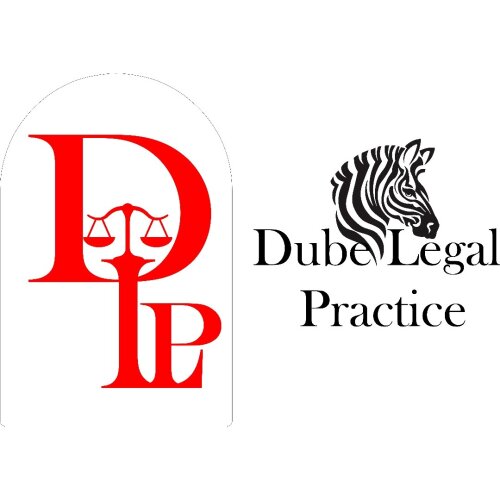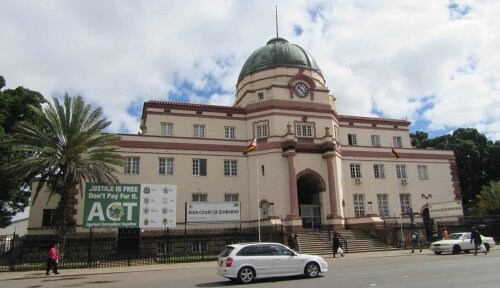Best Discrimination Lawyers in Bulawayo
Share your needs with us, get contacted by law firms.
Free. Takes 2 min.
List of the best lawyers in Bulawayo, Zimbabwe
About Discrimination Law in Bulawayo, Zimbabwe
Discrimination in Bulawayo, as in the rest of Zimbabwe, refers to the unfair or unequal treatment of individuals based on race, tribe, gender, disability, religion, political opinion, or other status. The country’s constitution and specific statutes aim to guarantee equality and prohibit discriminatory practices in various spheres such as employment, education, access to public services, and housing. Although legal protection exists, victims of discrimination often face challenges in recognizing and addressing these injustices. Understanding your rights is the first step in seeking justice if you feel you have been treated unfairly due to personal characteristics.
Why You May Need a Lawyer
Discrimination cases often involve complex legal and evidentiary issues. You may need a lawyer if you have experienced:
- Unfair treatment at the workplace, such as being passed over for promotions due to your gender, race, or disability
- Denial of services or entry to establishments based on your appearance or background
- Harassment or bullying in schools or universities linked to your religion or ethnicity
- Difficulty accessing housing or rental opportunities because of personal characteristics
- Retaliation after making a complaint about discrimination
- Need to file a claim with a court or a government agency
A qualified lawyer can help you collect evidence, understand your rights, mediate disputes, and represent you in proceedings to seek remedies for the harm suffered.
Local Laws Overview
Zimbabwe’s main legal engine against discrimination is the Constitution of Zimbabwe (Amendment No. 20) Act, 2013. Section 56 ensures the right to equality and non-discrimination, making it unlawful to treat people differently based on race, tribe, place of origin, color, ethnic or social origin, language, class, religious belief, political affiliation, opinion, custom, culture, sex, gender, marital status, age, pregnancy, disability, or economic or social status. Employment is further addressed by the Labour Act, which prohibits discrimination at the workplace. Various other statutes and codes of conduct in schools, housing, and public administration reinforce anti-discrimination principles. Local enforcement is often handled by the courts, as well as by institutions like the Zimbabwe Human Rights Commission, which investigates and provides recommendations on discrimination cases.
Frequently Asked Questions
What types of discrimination are legally recognized in Bulawayo?
All forms of discrimination based on race, tribe, gender, disability, religion, opinion, color, language, place of origin, marital status, and similar grounds are recognized and unlawful under Zimbabwean law.
What should I do if I think I have been discriminated against?
Document the incident, save any evidence such as communications or witness statements, and consult with a lawyer or the Zimbabwe Human Rights Commission to learn about your options.
Can I take my case to court?
Yes, you can file a case in a Zimbabwean court if you have experienced discrimination. A lawyer can help you prepare and present your case effectively.
Is there a government agency that handles discrimination complaints?
The Zimbabwe Human Rights Commission is the key governmental agency responsible for investigating complaints of discrimination and offering recommendations.
What remedies are available if my complaint is successful?
You may receive compensation, a formal apology, reinstatement (for job discrimination), or a court order requiring the discrimination to stop or be rectified.
Is discrimination in the workplace illegal?
Yes, workplace discrimination is explicitly prohibited by the Labour Act and the Constitution. Victims have the right to seek redress through labour courts or mediation.
Are there time limits for filing a discrimination complaint?
There are statutory deadlines for filing complaints, which may vary depending on the context. It is important to seek advice promptly to avoid missing filing windows.
Can I get free legal help?
Some NGOs and legal aid clinics offer free or subsidized legal assistance for those who cannot afford a private lawyer. The Zimbabwe Human Rights Commission may also offer assistance.
Does the law protect foreigners or non-citizens from discrimination?
Yes, anti-discrimination laws protect all persons within Zimbabwe, not just citizens, though legal processes may vary.
What evidence do I need to prove discrimination?
Evidence may include written communications, witness testimony, employment records, statements from involved parties, or other documentation showing differential treatment.
Additional Resources
If you need guidance or support regarding discrimination, consider contacting these bodies and organizations:
- Zimbabwe Human Rights Commission - Handles complaints of discrimination and offers guidance on rights and remedies
- Legal Resources Foundation - Provides legal advice and support, including representation in discrimination cases
- Zimbabwe Lawyers for Human Rights - Offers legal representation and education to those experiencing discrimination
- Bulawayo City Council - May address public service discrimination complaints at the municipal level
- Local Legal Aid Society offices - Offer free or subsidized legal help for those who qualify
Next Steps
If you believe you have experienced discrimination in Bulawayo, here are steps you can take:
- Gather all relevant documents, such as letters, emails, or witness details, related to the discriminatory incident
- Consult with a lawyer or visit a legal aid clinic to discuss your case and explore your options
- Consider filing a formal complaint with the Zimbabwe Human Rights Commission or the relevant local body
- Follow your lawyer’s guidance on pursuing legal action, mediation, or settlement
- Take note of any deadlines for filing complaints to safeguard your rights under local law
Seeking prompt legal advice ensures you understand your rights and increases the likelihood of resolving your case successfully.
Lawzana helps you find the best lawyers and law firms in Bulawayo through a curated and pre-screened list of qualified legal professionals. Our platform offers rankings and detailed profiles of attorneys and law firms, allowing you to compare based on practice areas, including Discrimination, experience, and client feedback.
Each profile includes a description of the firm's areas of practice, client reviews, team members and partners, year of establishment, spoken languages, office locations, contact information, social media presence, and any published articles or resources. Most firms on our platform speak English and are experienced in both local and international legal matters.
Get a quote from top-rated law firms in Bulawayo, Zimbabwe — quickly, securely, and without unnecessary hassle.
Disclaimer:
The information provided on this page is for general informational purposes only and does not constitute legal advice. While we strive to ensure the accuracy and relevance of the content, legal information may change over time, and interpretations of the law can vary. You should always consult with a qualified legal professional for advice specific to your situation.
We disclaim all liability for actions taken or not taken based on the content of this page. If you believe any information is incorrect or outdated, please contact us, and we will review and update it where appropriate.










